#jdramas in 2024
Explore tagged Tumblr posts
Text
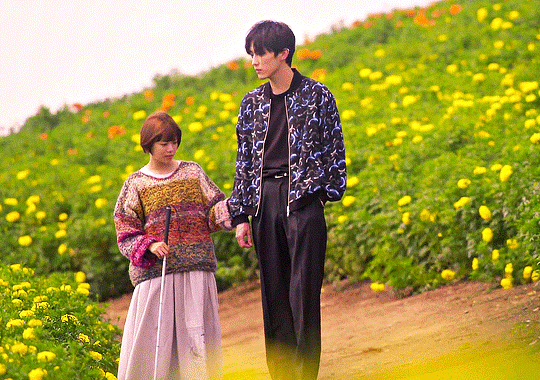



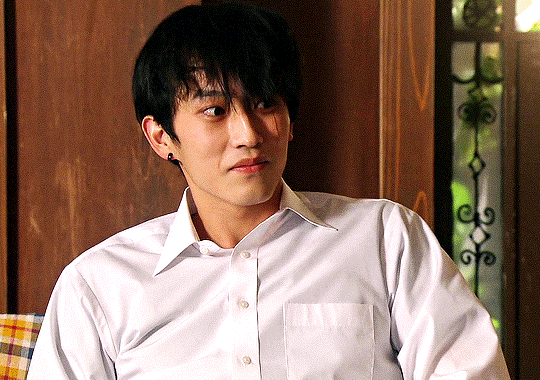



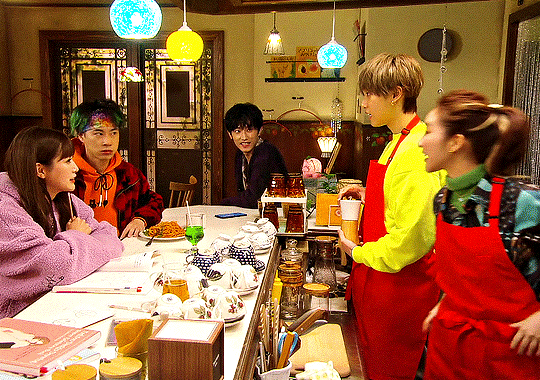

✧ KOI DESU: YANKEE-KUN TO HAKUJOU GARU 恋です!~ヤンキー君と白杖ガール~ 2021, dir. Kariyama Shunsuke, Uchida Hidemi.
#jdramas in 2024#favorite jdramas 2024#koi desu: yankee-kun to hakujou garu#恋です!~ヤンキー君と白杖ガール~#it's love: yankee-kun and white cane girl#sugisaki hana#sugino yosuke#jdrama#jdramaedit#*#let's see if i can keep this up lol#watchlist24#jflowgifs
107 notes
·
View notes
Text





ひだまりが聴こえる (2024) subtitles by Sketchy BL Subbing Team & Oshiroen
#nakazawa motoki#motoki nakazawa#中沢元紀#kobayashi toranosuke#toranosuke kobayashi#小林虎之介#hidamari ga kikoeru#i hear the sunspot#ひだまりが聴こえる#jdrama#jdramaedit#jdramasource#jdramaflow#hidamari: s1e1#drama#2024
658 notes
·
View notes
Text
The thing about watching K-dramas, C-dramas, or J-dramas is that when I want more about my favourite ships from fanfictions, 90% of the time that means I have to write the stories myself.
#kdrama#cdrama#jdrama#burn the house down#the double#who rules the world#goodbye my princess#house of ninjas#shogun 2024#fireworks of my heart#mr queen#twinkling watermelon#goblin#guardian the lonely and great god#sweet home#strangers from hell#bad and crazy#tale of the nine tailed#coffee prince#little women kdrama#touch your heart#law school kdrama#welcome to waikiki#18 again#and many more
295 notes
·
View notes
Text




#kodoku no gurume#the solitary gourmet#new year's eve special 2024#matsushige yutaka#jdrama#caps#food
103 notes
·
View notes
Text
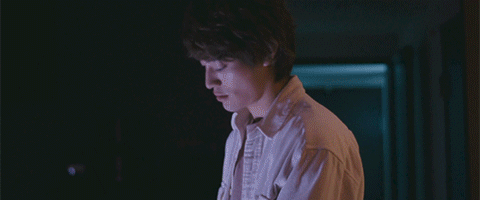
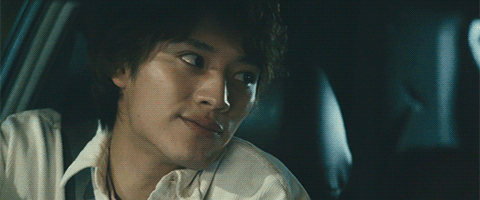
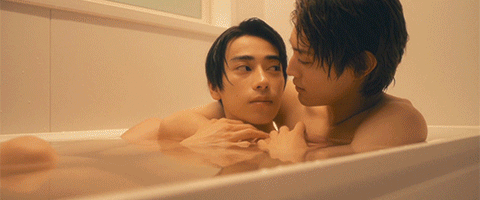
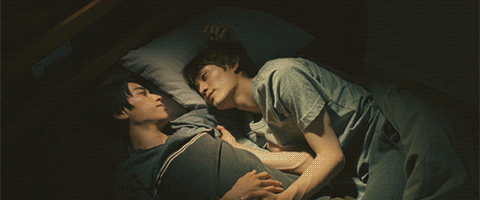

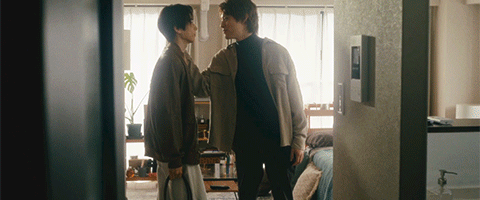
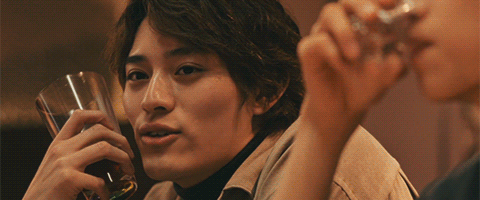
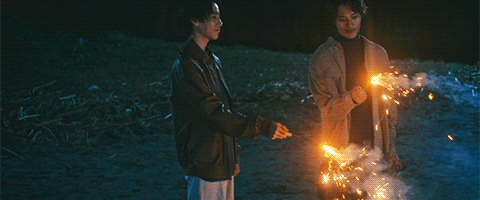
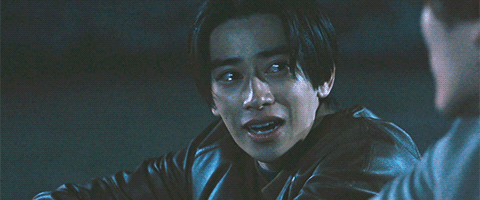

Miseinen: Mijukuna Oretachi wa Bukiyo ni Shinkochu | Special
Japanese Drama - 2024, 10 episodes Link: Gaga | Viki | YouTube | iQIYI | WeTV | Youku | Tencent
#Drama: Our Youth#Miseinen: Mijukuna Oretachi wa Bukiyo ni Shinkochu#Japanese Drama - 2024#LGBTQ+#JDrama#未成年~未熟な俺たちは不器用に進行中~#Motojima Junsei#Kamimura Kenshin#Imai Yuki#Miyaji Itsuki#Japan BL#BL GIFS#Kiss Episode#Special Episode
91 notes
·
View notes
Text
Random QL Superlatives: 2024 Edition
This list is gonna contain qls (and a few kdramas) I’ve watched this year, rather than the qls that were released this year.
Best Hosaka: Namgoong Shiwoon, Light On Me
ICYMI, I am obsessed with Hosaka from I Cannot Reach You, for his complete disdain for miscommunication, his incredible radar for bullshittery, and his otherworldly ability to not-so-gentle-parent bl boys into talking to each other. Every BL should have a Hoska. A Hosaka is a crucial part of a healthy BL ecosystem imo. So this year’s Best Hosaka Award goes to.. Namgoong Shiwoon!

Namgoong is kind yet firm in his opinions (and boyyy does he have them in a bushel and a peck), goofy in physicality yet measured with his words, and an all-around stellar friend. He would figure out the exact ways you’re ruining your life before you’ve even had a chance to emerge from the mental rubble, and will meet you with a detailed presentation on how to fix everything. Get a Namgoong for your life and listen to them for the best results!
Favorite Signature Move, Kiyoi tackling Hira, Utsukushii Kare 2 and Utsukushii Kare: Eternal
Kiyoi losing his patience with Hira and tackling him to the ground so he can get in his face and scream to get information out of him was simultaneously hilarious and sad.


Most Ineffective Defense: Sangwoo and His Lil Desk Divider, Semantic Error

I am still laughing at how Sangwoo believed with his entire precious heart that putting up a foot tall, easily removable physical barrier is gonna deter my man Jaeyoung, menace extraordinaire and dedicated Sangwoo-annoyer. Boy, did you even wanna try?
Saddest Sex Scene: At 25:00, In Akasaka
I was already heartbroken when Hayama and Shirasaki tried, failed, and emotionally devastated each other by attempting to “rehearse” for their intimate scene the previous night, but the filming of the actual scene took the pieces of my shattered heart, stomped on it, and then set it on fire. The aborted pinkie touch should be made illegal due to the amount of pain it inflicts on the masses.

Favorite Wholly Unrealistic Teenage Boy, Hasegawa, Oppan
I love this boy with all my heart and soul. What a mature little teenage noodle. The writers must’ve conceived his character by pouring all the good stuff they want to see in a baseball-jock teenage boy into a beaker, and out he emerged, Powerpuff Girls style.

Best Use of Strong-Independent-Women Money: Lee Mi Na’s Collection, Hit The Spot
I adore this woman for many things. Her friendship with Hee Jae. Her standards for men.

But most of all, I adore her for the things she spends her money on.


What an icon.
Best Righteous Anger: Ryunosuke, Tokyo In April Is…
I am always a big fan of characters who are mad for the right reasons and are not afraid to show it. Ryunosuke watched his friend carry this unbearable guilt around for years, and was rightfully mad at Kazuma who he assumed knew what had happened to Ren. And when he realized that Kazuma did not know, Ryunosuke sets his anger aside and tells Kazuma. I am part of the Ren Protection Squad and Ryunosuke is our leader.

The Cameo That Inspired The Loudest Scream: Madea Kentaro in Utsukushii Kare: Eternal
My earnest, precious son Yamato from I Cannot Reach You showing up in the middle of Hira and Kiyoi’s patented messiness? The scream I scrumpt, y’all.

Bestest Best Friend: Joon Pyo, The Eighth Sense
Joon Pyo! He got the fuck out of his own room for the night so his childhood best friend can get some. Ji Hyun better protect and cherish him at all costs.
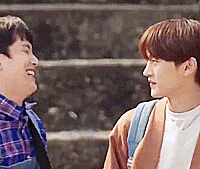
Most Precious Gift To The World: Fujita-san and Kasuga’s conversation, Tsukuritai Onna to Tabetai Onna Season 2
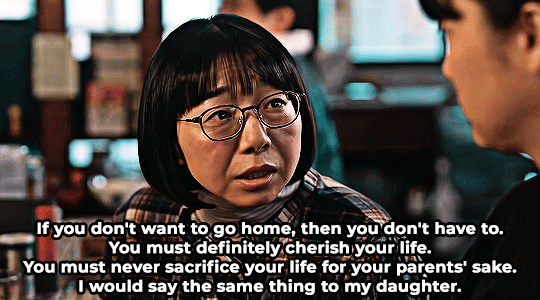
Asian daughters fighting the intergenerational trauma demon everyday just.. get to have this? To watch whenever we want and draw strength from it? And feel the shoulders of the other daughters (and mothers) also fighting their fight, standing right beside us, fighting, and living, and thriving? What a blessing.
Wisest Wisdom: Pie’s Post-Breakup Advice, The Trainee

Heartbreak is temporary. French Fries are eternal.
The Swooniest Gwenchana: Ji Hyun, Happiness

Did I make up a whole category just because I needed to put his face on this post? Yes.
This year has been, amongst many things, undeniably fun. Tag me in your superlatives lists, and I will see y’all in the next one!
Tagging the peeps: @lurkingshan, @bengiyo, @happypotato48, @wen-kexing-apologist, @starryalpacasstuff
#bl superlatives 2024#light on me#utsukushii kare#utsukushii kare 2#utsukushii kare: eternal#my beautiful man#semantic error#25 ji akasaka de#at 25:00 in akasaka#ossan no pantsu ga nandatte ii janai ka!#don't care for an old man's underwear!#oppan#hit the spot#shigatsu no tokyo wa...#tokyo in april is...#the eighth sense#tsukuritai onna to tabetai onna#she loves to cook and she loves to eat#the trainee#tvn happiness#multi ql#kdrama#jdrama
72 notes
·
View notes
Text





𝔻𝔼𝔸𝕋ℍ ℕ𝕆𝕋𝔼-tober Day 30: aLone
#what if i talked about the diegetic implications of L narrating relight for 1k words. then what#quote from a place in this world by taylor swift#pls notice i edited out the fence in the lctw gif cause i didnt like it#thanks to emmy for putting up with me making this#deathnotetober 2024#death note#described in alt text#L change the world#death note 2015#death note jdrama#death note live action#kento yamazaki#山﨑賢人#death note tv drama#dntober 2024#death notetober#deathnotetober#teppei koike#小池 徹平#ken'ichi matsuyama#kenichi matsuyama#松山 ケンイチ#Death Note the Last Name
139 notes
·
View notes
Text
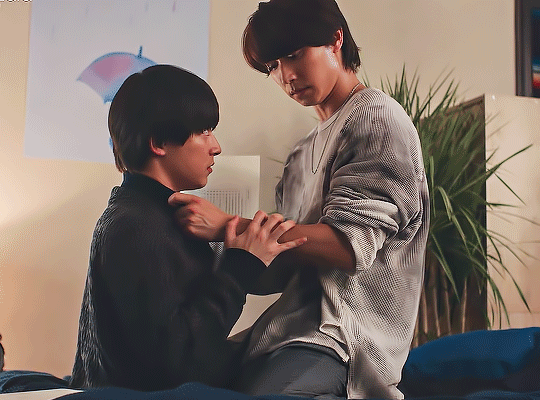
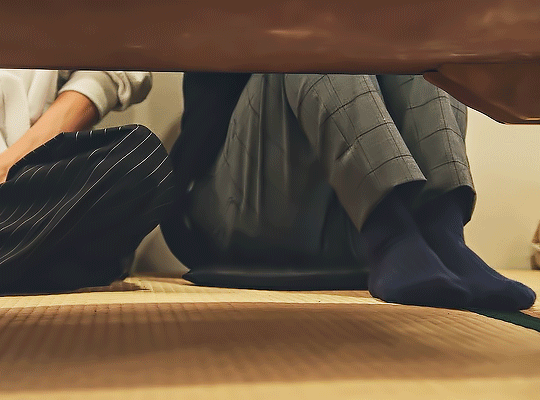
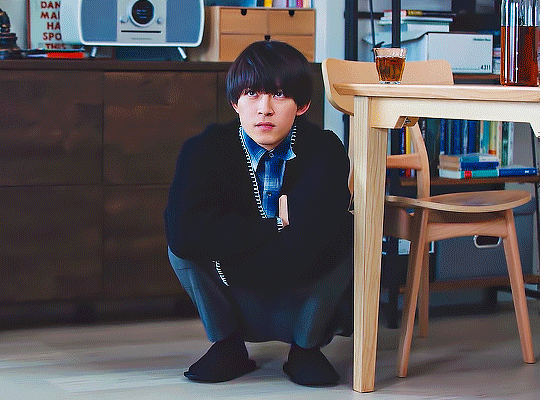


2024 WATCHLIST
We should still cancel their living arrangement. If this keeps up, they won't be Mitsutani and Momoshiro. I Became the Main Role of a BL Drama, japan (2023 - 2024)
#i became the main role of a bl drama#bl drama no shuen ni narimashita: crank up hen#BLドラマの主演になりました クランクアップ編#jdrama#jdramaedit#jdramasource#asiandramasource#asiandramanet#userdramas#bl drama#userkimchi#*gifs#*2024
376 notes
·
View notes
Text


RED BLUE (2024) I To be released on 17/12/2024
Hasegawa Makoto as Iwase Sannosuke Kasamatsu Sho as Amachi Wataru
#red blue 2024#red blue#red blue the series#jdrama#forfive#userspicy#userrlana#kasamatsu sho#hasegawa makoto#makoto hasegawa#the rampage from exile tribe#userfaiza#this is kinda insane#oh they want me to combust on the spot i see#makoto looks just so fucking good and that blonde hair is just the sherry on top#and look at his arms..........whew#and then there's sho with those glasses and all covered up - it's hitting the spot#userstorge#mypost
49 notes
·
View notes
Text
Finally, Some Good Fucking Food: The Marahuyo Project and Ossan no Pantsu Episode
AND WE'RE BACK!
After a longer break than we expected, we are finally back to catch up on some shows we really enjoyed this season. Come join us for a Bangers Only episode as we take a break from BL and explore the queer truth found in JP Habac and ANIMA Studios' (Gaya sa Pelikula) Marahuyo Project and Ossan no Pants ga Nandatte Ii Janai ka! aka Don't Care For an Old Man's Underwear!
Timestamps
The timestamps will now correspond with chapters on Spotify for easier navigation.
00:00:00 - Welcome
00:01:15 - Introduction
00:08:40 - Marahuyo Project: A Queer Activist's Story
00:20:24 - Marahuyo Project: On Queerness
00:30:16 - Marahuyo Project: Our Characters
00:42:09 - Marahuyo Project: The Christina Story
00:48:52 - Marahuyo Project: Parents and Children
00:54:54 - Marahuyo Project: Final Thoughts and Ratings
00:59:48 - Ossan no Pants
01:05:18 - Ossan no Pants: Our Characters
01:26:30 - Ossan no Pants: Key Character Arcs
01:36:49 - Ossan no Pants: Furuike and That Fucking Guy
01:45:25 Ossan no Pants: Final Thoughts and Ratings
01:51:18 - Importance of Variety in Media Consumption
The Conversation Transcripts!
Thanks to the continued efforts of @lurkingshan as an editor and proofreader, we are able to bring you transcripts of the episodes.
We will endeavor to make the transcripts available when the episodes launch, and it is our goal to make them available for past episodes (Coming soon thanks to @wen-kexing-apologist). When transcripts are available, we will attach them to the episode post (like this one) and put the transcript behind a Read More cut to cut down on scrolling.
Please send our volunteers your thanks!
00:00:00 - Welcome
NiNi
Welcome to The Conversation About BL, aka The Brown Liquor Podcast.
Ben
And there it is. I’m Ben.
NiNi
I’m NiNi.
Ben
And we’re you’re drunk Caribbean uncle and auntie here sitting on the porch in the rocking chairs.
NiNi
Four times a year we pop in to talk about what’s going on in the BL world.
Ben
We shoot the shit about stories and all the drama going into them. I review from a queer media lens.
NiNi
And I review from a romance and drama lens.
Ben
So if you like cracked-out takes and really intense emotional analysis…
NiNi
If you like talking about artistry, industry, and the discourse…
Ben
And if you generally just love simping…
NiNi
There is a lot of simping on this podcast…
Ben
We are the show for you!
00:01:15 - Introduction
Ben
And we're back. This week we're going to be taking a little bit of a break from BL and doing a special class pre-award season discussion of two shows we loved so much that it restored my faith in television as a genre. We're going to be discussing Marahuyo Project from ANIMA Studios and we're going to be discussing Don't Care for an Old Man's Underwear! The Japanese name is Ossan no Pantsu ga Nandatte Ii Janai ka!
Before we get into this, we're gonna do a little bit of a breakdown on our special class awards and why we often will pull them aside from our BL discussion. NiNi, would you like to offer some insight for us?
NiNi
Sure, Ben, but first, we've got a guest. Say hi, Shan. [laughs]
Shan
Ben just forgot that I'm a guest at this point.
Ben
It’s true. Shan's still here! She has not left the booth. [laughs]
Shan
I just stay here permanently now. I have squatted in the booth. Hi people, it's Shan.
NiNi
Always good to have you around, Shan.
So, so we are talking a little bit outside of the BL genre this week. We are talking about our special class type programs. We have several categories of special class in our VIIB awards, but the one that we're talking about here is standout queer narrative. Those queer stories that are not technically romances, or at least go beyond the romance genre to reveal and get into some kind of queer truth that maybe romance is not best placed to delve into.
Ben
Since Shan is here and she has watched so many dramas, [laughs] Shan, why don't you walk us through some of the things that distinguish broader sort of family- and community-oriented dramas versus, like, romcoms and romantic dramas.
Shan
I think what makes a show a family drama, versus a romance drama that has family elements, is really what drives the story, what the focus and locust of the story is. In a romance, in a BL or a GL, a QL in general, the primary driver of the plot is a romantic relationship. In a family drama, what drives the plot is more about the relationships of a family unit. Or a drama that's more about community, like something like a Moonlight Chicken, you get community and the relationships between different community members, friendships and neighbors and things like that, being the driving force of the plot.
So when you're talking about categorization, that's really the difference. It's not that a family drama or a community-based drama cannot include romances. They very often or even usually do. It's just about really what drives the story. And in both of the dramas that we're talking about today, what drives the story is relationships that are more familial in nature or more friendship-oriented or more about how a community of people comes together.
Ben
Something else that I think is notable in different styles of drama is what role the supporting cast has. NiNi, you've been probably the biggest fan of side characters and their roles in all the various QL we've watched. I’d like you to maybe talk a little bit about the role you feel for side characters in romance versus side characters in dramas.
NiNi
When it comes to side characters in a romance, these people are usually the friends and family of the main couple. And they're usually deeply integrated into how these two people are coming together. Sometimes they have their own stories happening alongside that are sort of echoing the themes or maybe even opposing the themes in some really interesting ways. That's what I'm looking for when I'm thinking about side characters in a romance story.
When you’re going outward to like family or community and talking about those stories, what you're looking for, for me anyway, is an expansion of the world. I want to know everything about this universe when I'm getting into a family drama, a community drama, a workplace drama. I want it to expand. I am a romance girl, so I like when a romantic drama focuses on the couple, and yes, you get some expansion of the world in that and an understanding of the world around them. But the couple's really the focus. I think in these wider dramas, I like understanding how these people's world operates and how they are all connected to each other inside of that world.
Ben
I like the way you broke that down. In BL in particular, the friends are always built around their support for the core couple. Even in our award season, we award a Best Boy and Best Girl award each year. And that usually goes to one of the standout friends that supported our romantic leads. But in drama like this, I'm interested, like she said, in expanding the world, like what perils and challenges are the side characters facing that help add flavor to the core themes that we're exploring here?
So with the two shows are gonna be talking about today, Marahuyo Project is about a young man who's a very out queer activist in his school in Manila, and after being expelled from the school is sent to a very rural town and there decides to create an LGBT club. Sorry, he uses the full acronym. LGBTQIA+ community while he's there. In our other show, Oppan for short, we're dealing with a middle-aged man kind of a grognard stuck in his way who, after a surprise encounter with a young gay man decides it's time for him to update himself and rebuild his relationship with his family and his co-workers. And it's a show fundamentally about personal growth.
So those themes don't necessarily prioritize romance in them. And we'll get into that more as we focus on those shows. The last thing I wanna highlight before we talk about these shows, ‘cause we've been talking about it a lot, particularly with last season's complex disappointments for us, neither of these shows is in the bubble. These shows exist in a world very reminiscent of our own, and homophobia and the expectations of society at large and how queer people should conform are very much present themes in these stories.
And with that, NiNi, take us in!
NiNi
Why is NiNi always taking us in? NiNi never knows what's happening here. [laughs]
00:08:40 - Marahuyo Project: A Queer Activist's Story
NiNi
So first up we're going to talk about the Marahuyo Project from the Philippines. Ben, what is Marahuyo Project about?
Ben
About how that thankfully ANIMA Studios is not dead and Gaya sa Pelikula is not the last thing we're gonna see from them. JP Habac is still out there, friends, and he's still making stuff.
Marahuyo Project is a kind of, like, a romance drama, sorta, about a young man named King. He is a queer activist at his school in Manila and he does not like the dean of his school. He ends up fussing with her and to piss her off, he ends up making out with his friend in front of her. She tries to separate them and he throws her to the ground accidentally, gets expelled for laying hands on her. And so he is sent away to the town of Marahuyo, a town very far from Manila, and he has to figure out how to exist in this community that doesn't have very much of an out queer network here. He decides to build an LGBTQIA+ organization on campus. And as with everything with these sort of stories, as soon as one person starts coming out, other people start coming out quite loudly in response, or not so loudly in other ways. This show is really fascinating because they insisted on using the entire LGBTQIA+ acronym, and they were intentional about that.
Adrian Lindayag played King in this and he was also in The Boy Foretold by the Stars, which I forced Shan to watch. And she did not like it!
Shan
You sure did. Forced is the right word.
Ben
And she did not like it!
[Ben and Shan laugh]
Shan
I did not like it! But I loved Adrian. I was so excited to see him get another show, and a frankly much better written show. [laughs]
Ben
And his friend who he kisses in the first episode is played by Tommy Alejandrino, who was the lead in The Day I Loved You, a show that I really loved. And I thought it was really special and kind of interesting that this show led in its very first episode with a kiss between two boys whose actors had played kind of femme-y characters before this. That felt really intentional.
I actually want to start with you, NiNi, because you grew up in an island community. I actually want your perspective on King being moved from the metro of Manila to an island that doesn't really have a stable power grid for all day power, and how you feel about him going from an urban center to a rural town.
NiNi
It's so funny. I grew up in Trinidad and the southern Caribbean. Trinidad is considered a quote-unquote rich country and I grew up in the city. But I have friends who grew up in the country. My own family is from the country. My aunt used to tell stories, leaving town and going down to the country to spend time with her father's family, with her grandmother, sometimes with her cousins, and my friends now tell stories about that kind of stuff, as well. There's even a joke sometimes that if you got into trouble in town they would send you down south which is more rural. Or they would send you to live with your grandmother in Manzanilla, which is another rural area. So, there's some elements of that to the stories that I knew about the way that people grow up. And so there's a lot about Marahuyo that reminded me, not just of parts of Trinidad, but of other parts of the Caribbean that I'm familiar with and people that I know and that I'm friends with, have grown up in.
So the whole thing about getting sent to country, it was so familiar in a lot of ways. That whole thing about not having power, or having these village politics kind of mentality about a lotta things. And ways that people can surprise you as well, because you have certain expectations of people who come from those kinds of communities and that kind of background and those kinds of situations where, you know, oh, you don't have lights, what do you know about anything? People make assumptions about people being backward or whatever, and actually no, that's not how it is. So this had a hint of familiarity to it in terms of the story.
Also, I was glad to see it because so many Filipino stories are set in metro Manila or are set in the pretty tourist parts, not places like Marahuyo. I really enjoyed seeing that aspect of life in the Philippines. It felt very homey to me in a lot of ways. But this is one of the things that I enjoy about Filipino drama and about Filipino BL. A lot of these BLs are coming from countries that do feel familiar to me, but Filipino BL in particular has that ring of familiarity to me in a way that some of these other places don't.
Shan
NiNi, I think what you said about the assumptions people have about people who live in these more isolated places in the country or, like, on a small island, is really such an important thing that informed this story. Because King stormed onto that island with his big city attitude and he assumed that every single person he met was a hick who would never understand him. And I think one of the best parts of this story was seeing him have his eyes opened to the reality that there are queer people everywhere and there are people who can understand him everywhere and he has to be open to seeing them and connecting with them. I thought that was such an important piece of the journey that he went on as the main character of this story. I really loved the way the show peeled back those first assumptions that he had about a lot of the people he met in Marahuyo.
Ben
It's very clear that King was sent to Marahuyo in the hopes that isolating him there digitally and physically would sort of, like, contain him. And it didn't. He seemed to adapt to his circumstances fairly quickly, even as he demanded that those circumstances [laughs] also adapt to him. I thought it was really interesting that they sent him to the mom who abandoned him essentially to hang out and live with his grandmother who's always had his back. That was probably one of the most unexpected dynamics in the whole show. I was not expecting that complex set of interactions where the grandma was so on his side that she had put a whole pride flag in his room and had dresses ready to help his friend, but the mom's still sorting her shit out.
Shan
I loved the nuance of that, because… it can be complicated. We are shaped to some degree by our families and by the people who raised us, but we're also shaped by the world we live in. And I thought it was a cool choice to have King have an accepting and loving grandmother. His mother did not learn her fear and her bigotry from her own mother. And I think that's an interesting choice that really reflects reality.
Ben
I think what worked really well about having his grandma be so queer friendly is that when she tells him to give Marahuyo a chance, the growth arc that you mentioned is possible because he's able to receive that message from someone he trusts and respects, who he knows also trusts and respects him. I think that that sets him up to be open to learning things. ‘cause he spends the beginning of almost every episode giving us a small lesson in Filipino queer history, particularly as it pertains to colonization.
I was gonna go to NiNi for that one and see if you had thoughts about that because you've spoken at length about the diasporic experience and living under extensive colonialism.
NiNi
I mean, how much time do we have to have this conversation?
Ben
Probably five to eight minutes.
[all laugh]
Shan
Yeah, do your whole talk on colonialism in five minutes, NiNi.
NiNi
Oh my god, okay, no pressure. Yeah, I think that's one of the reasons that Filipino BL in particular does speak to me because of that colonized experience. The colonized experience is so specific and so similar all over the world, no matter where you were colonized or who you were colonized by. You recognize it in people, you recognize it in the society, you recognize it in the environment. The way that the Philippines is so Catholic and Catholicism is all over this story. How Catholicism has harmed people, how people find shelter in it, how people find safety in it, it's all over this.
And one of the things about coming from a place that was colonized is that you have this sort of weird love/hate relationship with the people and the places and the experiences of the colonizer. On the one hand, like, revolution, resistance, that's part of it. And that's part of what King is dealing with as well. Talking about the parts of history that get hidden by the colonizer because it's inconvenient to them or they wanna bury some particular truth. That's the resistance part, but also the part where people are talking about things like tradition and gentility and all that stuff that the various deans, because it's two deans—three deans, I think—in this story. And they're all talking about things like propriety and respectability. And those are things that you're fighting against every single day, where those ideas even come from is a place in yourself that you sort of recognize, but you fight against every day. The experience of being colonized does a number on your head, it does a number on your society. It is wild to experience.
One of the things that I enjoyed about this is that it did give me that kind of feeling of wanting something out of the experience that you're not even sure what it is. Like you want revolution, but you also want all the things that the colonizer told you to have. It's this bizarre feeling.
Shan
It’s a mindfuck.
NiNi
Yeah, it is a mindfuck. And it's a hard thing to explain to anybody who hasn't had the experience.
00:20:24 - Marahuyo Project: On Queerness
Ben
I wanna start moving into our character specific discussion. When King first gets to the island, he has a very weird meet cute [Shan laughs] with like the island's favorite boy who's the scion of their most beloved or most successful, whatever, family—the Soliman family—where a, like, shit ton of fish gets thrown in the air. [laughs]
Shan
There's so many fishes!
NiNi
He literally gets showered in fish and I'm like, this is so clever. Like, as a joke, it was a very good joke.
Shan
Very effective.
NiNi
It was a very effective joke. And as a metaphor, also extremely effective. It was so good. This is the kinda shit that JP Habac excels at.
Ben
I knew you were gonna love that. So, right away, because King won't shut the fuck up about the fact that he's queer, he ends up finding a trans girl in his class almost immediately, who's also beefing with the local priest, who ends up going by the name of Venice. And the two of them team up and decide they're gonna start their own LGBTQIA+ organization. And Venice, was like, we added more letters? Wait, what?! [laughs] How do I say all of those?
Shan
I love my naive girl. She doesn't know anything.
Ben
She's so pretty. [laughs] Also, shout out to Venice for eating in, like, every scene—
Shan
Every scene!
Ben
—for eight episodes.
NiNi
So much rambutan, I swear.
Shan
Always eating rambutan specifically, not just eating, eating this specific island fruit. [laughs] She loves ‘em.
Ben
So, Ino's family is very beloved on this island and Ino is the first obstacle they think they have to get past to getting their organization approved. But very quickly we suss out that Ino is likely closeted. And then we confirm that he's closeted in a really interesting bit we'll get into in a bit.
I wanted, while we're here talking about the island politics, NiNi, to talk about the reveal we get later on that Ino’s ancestor, who his family has all of this pride for, exists because he outed a queer man and then robbed him. And then the island community built a tradition around the poetry that they stole from a queer man, who they then basically drove to death.
NiNi
Yeah. This is a comedy, by the way.
[all laugh]
NiNi
I just had to fire that one out.
Shan
We started with all this super serious stuff. It sounds like such a heavy show. And it is, kind of, but it doesn't feel heavy. It just deals with heavy things.
Ben
The themes are actually heavy when you think about them, but because you've got really optimistic and energetic young people, it doesn't feel as heavy as it actually is.
NiNi
It really doesn't. But I mean, again, this is a story of colonization. Things get stolen all the time. Your own history gets stolen from you. And you have to go back into history and find your truths. So that work of uncovering and unearthing and archiving and storytelling and passing things down from generation to generation, that is real active work that takes place every single day in a colonized place. Unlearning a lot of what the colonizer tells you about yourself. All of that is part of the colonized experience and that's what I was really gratified to see them tackling in this show. This idea that they hid the truth from you and now you have to not only go and learn the truth but tell it to as many people as possible.
Shan
Yeah, and I think it's really meaningful that they found out this truth via a story told to them by an elder on the island who they just kind of happened upon.
Ben
But it happened because they were doing research. They were trying to justify their organization and it was recommended to them that they show that this organization would be good for Marahuyo as it currently is, not just because some kid from Manila says they need to have this. And so the trio that had formed at that point was doing real research into the history of the town itself, and that's what eventually led them to asking this woman about this history.
Shan
Yeah, and to tie that into the romance, which you kind of alluded to, Ben, but we haven't really talked about is, King and Ino, they start with a very antagonistic relationship. Over time we figure out this antagonism on Ino's side is because King is pulling things out of him that he's trying to suppress. He feels uncomfortable because he is a closeted queer kid and King is loudly and forcefully demanding that folks recognize his queerness and also the queerness within themselves. And so, they have an uncomfortable dynamic that starts to smooth out over time as they get to know each other and understand each other better and as Ino decides to kind of push back his fear and start helping King try to make this club happen.
So it's in that context that they're on this research trip and they go to this elder and she sits them down and she tells them this story. And that is how Ino finds out that his whole family legacy is built on a lie and that his ancestor harmed somebody who's just like him, a gay man who did nothing wrong. All he did was profess his feelings for somebody who didn't return them. And he was destroyed over that. That is what Ino's family legacy was built on. Finding that out was just a huge moment of despair for him. And in some ways brought him and King closer together as they worked through that, and in other ways made it even harder, I think, to imagine being able to be with someone like King, who's so open and so free. It was a really beautiful moment and it was a really important moment, both in the romance and in the broader story.
NiNi
There's two things that you said there, Shan, that I actually want to pull out. The part that you said about Ino’s ancestor having harmed somebody whose only sin was expressing feelings to somebody who didn't return them. I actually, I can't remember exactly, but wasn't the story that he did return the feelings and then panicked about them, or something like that? I can't remember.
Shan
I think we don't know.
Ben
That part is unclear.
Shan
It's a speculation.
Ben
What we learned, based upon what is provable, that he had written poems about his unrequited love for the Soliman ancestor. And then the Soliman ancestor unintentionally—or maybe intentionally—discovered these poems. He had not been given them. I think that's a big part of this too, is that—what's his name, Nalundasan—was outed. And then the Soliman ancestor turned on him in a vile way. And that ended horribly. And—
Shan
So we don't know if he turned on him because he was afraid, because he was suppressing his own queerness, or if he was just a garden variety, homophobic heterosexual man. We don't know.
Ben
I think what also makes me particularly sad about that story is Nalundasan, the person that they harmed in this, had performed a role as a community and cultural leader. And had chosen to closet himself, he left descendants behind. He formed a marriage and had kids. This was just the part of his life that he was not able to express, so he expressed it in his poetry that he had kept private until it was made public. And that part is really sad too, because Ino is closeted and knows it.
A lot of times in BL, a lot of these guys are, like, untapped sexual beings who are activated by the power of BL and product placement. In this story, most of the characters are well aware of how they feel about who they are and what's going on with them. King definitely knew who he was the whole time. His loud gay ass showed up with his mullet and was like, you can't tell me what to do.
Shan
His rainbow mullet.
Ben
Speaking of his mullet, I have to get this out on the podcast. I will never forgive his mother for cutting his hair while he was asleep. That was horrible and vile. And the only thing saving her from these knives is she's played by Sue Prado.
[Shan laughs]
NiNi
No, but legit, the fact that the show lets this go really upset me. Because it was such a violation. When it happened, I gasped. And the show gave it a lot of grace and let it go and that did not sit right with my spirit, I have to say.
Ben
I agree.
00:30:16 - Marahuyo Project: Our Characters
Ben
Ino is an interesting queer character in that when he sees King right away, he sees him almost as a threat, because Ino is trying not to draw attention to his own queerness. Like, it's clear he maybe wants to leave at some point and then deal with his shit. And he can feel that he's not going to be able to get away with that around King. He's also drawn to King because, I mean, why wouldn't he be? He's tall, he's really pretty. He wears ridiculously gay shirts. Some of them show off his midriff.
Shan
And he's brave! He's brave in a way that—
Ben
So brave!
Shan
—-Ino wishes he was. That's the thing, right?
NiNi
There's so much about King and King and Venice in particular that had me thinking a lot about the importance of the people who can't hide.
Ben
Mmhmm.
NiNi
And what they mean to the community and what it means for them to be out there at the vanguard, taking all the shit and how that's almost never recognized or rewarded or anything like that. But it's so important for the ones who are like Ino, the ones who are like Archie, to see the Kings and the Venices just loud and out in front and visible and unhideable and unapologetic and what that means. And the show really made you feel that. It made you feel not just that King and Venice are brave, but also how important what they were trying to do was, what the mission for them was.
Ben
It's also interesting too because their mission is not academic for them. King was dealing with homophobia even in Manila. Then he lands in Marahuyo and he's like, same shit different day. That man got called a slur and was like “hmph, uncreative.” And I was like, wow, they're throwing slurs around in these shows again. Finally, mask off. And I was weirdly relieved that the show was mask off about its homophobia because it's very frustrating sometimes to talk about shows where the homophobia is kind of subtle. And you have to argue with people about your interpretation, where they think you're being cruel to the show for recognizing what the show is doing. I like that that wasn't an issue here, thank you, JP Habac!
But in terms of what Venice is dealing with and what Archie and Ino are dealing with, queerness is also not academic for them either. King is not the first other homo they've ever encountered, because we learn that Ino's father almost or temporarily left his family for a love with another man and then chose to come back to his family and stay with their mom. And his dad explains that he loves Ino's mom and wants to be her husband even if it means he cannot enjoy his attraction to men. So, Ino is dealing with, like, a double closet in his life where the whole fucking town knows about his dad steppin’ out on his mom with a man.
We learn that Venice and Archie lost their friend.
Shan
Should we do, Ben, a rundown of the characters? ‘Cause we haven't really done that yet.
Ben
We probably should. Let's go down the whole cast!
Shan
Let's go down the list.
Ben
We've got King, our favorite gay boy with a mullet that should not have been lost. [Ben and Shan laugh] We have Ino, who's our big man on campus who gets his shit rocked. We've got Venice, everyone's favorite local trans girl. Who eats rambutan all the time.
[Ben and Shan laugh]
Shan
She loves those fucking rambutans.
Ben
Hanging around the local priest all the time is Archie, Venice's former friend who has pulled back on his friendship with Venice because of the death of their friend, who he repeatedly deadnames over the course of the show until he finally cracks through the core of his grief.
Archie is a complex character to talk about because he is also queer in some way and suffering in his own closet. And he's choosing a path that leads him to the priesthood as a way to survive under the pressures of the homophobia he lives under.
NiNi
So many thoughts about that.
Shan
Yeah, let's not, let’s not lose sight of the girls. Let's not go down the Archie Road yet. We also have—
Ben
Lorena! Aka Lorie. Lorie is probably some kind of queer. Might be bi, might be a lesbian, might be asexual. It's very clear—
Shan
She's figuring it out.
Ben
—she's still figuring it out by the end of the show. We are not going to label her here because she has not chosen one for herself. She is sorting through her own angst with men because of her own father's infidelity. And she's very close to her friend, Lili, who is eventually revealed to be probably intersex. And it's very clear that their friendship is extremely important to them in a way feels romantic on Lili's end, but Lorie is still sorting through. But the reveal from Lili to Lorie about this truth about her is one of my favorite moments in the whole show.
And then there's that asshole Marco who ruins it like five minutes later. I hate that boy.
Shan
Marco, our villain.
Ben
I hate that boy.
Shan
He's really the most villainous character in the show.
Ben
I hate that boy so much!
Shan
He's the worst. He's the fucking worst.
Ben
[laughs]I hate him. I hate him so much! Mmmmmm.
Shan
This is a story that takes place on a small island, but it’s also in a school. So there are school dynamics at play here with this group and how they come together. King and Venice connect pretty much right away when he gets there because they are both visibly queer and they latch onto each other. And King is very much, as Ben said earlier, an activist. He is loud and proud and he demands respect for his existence. And he also wants to create space for other people like him, or somewhere on the queer spectrum to have pride and to be able to come out and have space, too. Venice is very classic sunshine character. That girl is so pretty and so dumb and she's just the nicest girl, just ever! [laughs] But she just doesn't really know much. She doesn't know much about queerness because she's been very isolated. So King is teaching her about what it means to be a queer activist, what some of these terms mean, what it means to try to fight for your space, ‘cause she has been in a space of insisting on living as herself, but also accepting that in some ways she would have to just be quiet and conform to get by in the school, and King doesn't find that acceptable. So they latch onto each other through that.
And then Lorie is the mayor's daughter, so she has a lot of status in the town, similar to Ino, who’s part of this family that is the big legacy family. So they both have a lot of positional power within the school and within the community, which they use over the course of the story to help with the club and helping some of these other kids who are more like outcasts. Lili is friends with Lorie and that's her social entree in the school. Archie is part of the local church and close with the priest, which gives him a kind of authority too. He's seen on the island as almost like the deputy priest.
Ben
I have to say it, he has the authority given to an overseer.
Shan
Exactly. That is definitely his role. He's kind of a cop.
And Marco is just a little asshole who’s just a fucking asshole to everybody all the time. And they're all in school together, they're in this forced proximity and King and his arrival to the island really awakens in a lot of these kids who are queer but have been suppressing it, who are closeted either knowing or not, he really awakens in them this kind of connection to their own queerness. And they have varying responses to that. Some of them really joyfully wanting to come and be part of what he's building. Some of them being really afraid of it. We see the whole spectrum of responses there.
Ben
I think what also really works for me in terms of how this felt particularly queer, there's two big things. First, spoiler alert, they do not get to have their club. They are not given official approval for their club, but then they go, fuck you, we don't need it anyway. And then they have their march regardless. I love that.
The other part I like is that we have three characters who agree to out themselves in some way by trying to pursue the organization that they want to have. You get King, who's like, “I'm gay. You can use whatever slurs you want. They apply.” You got Venice, who's chosen to stay optimistic despite the death of Christina. And then you've got Lorie, who's like, you guys suck. I have way more fun with these guys. I'm going over there with them. And then each of them ends up holding the confidence of someone else who is closeted that they're close to.
King is developing a romance with Ino, Venice is holding the confidence of Archie, who does not come out over the course of this show. He's still closeted in the end and cheering for them from the closet. Something that I really appreciate the show doing. There are still people in our communities who do not feel safe enough to come out. And Lorie is holding Lili's confidence about her truth about being intersex. And I like that those three did not betray that confidence to each other. I thought that was a really important thing that the show did because when you are protecting someone who's closeted, the best way to do that is to shut the fuck up. You don't even tell people who could be trusted with that info because it's not your info to share.
That's the big point about protecting closeted people, is, if they're gonna come out, they need to feel like it's something that they have control over. What's so evil about Marco is he went out of his way to take that moment from Lili because she embarrassed him because he wouldn't stop sexually harassing Lorie.
NiNi
Yeah, I do like that you get three different takes on that whole, I guess you could call it end game, of the closet because you've got Archie who stays in, you've got Ino who comes out, and then you've got Lili who gets outed. And then you get to see how each of those things impact the characters. I found that to be really, really interesting to watch.
00:42:09 - Marahuyo Project: The Christina Story
Shan
We should talk more, we've been alluding to it, but we should fully elaborate on the backstory with Archie and Venice because it is, I think, one of the most touching stories that this show told.
So Archie and Venice and their friend Christina grew up together. They have been best friends since childhood. We don't get every detail, but what we do learn over time is that Christina, like Venice, was trans and somewhere in her transition and in her coming out, something went very badly for her and she ended up, presumably, ending her own life. This created very different responses in Archie and in Venice. Venice kind of carried on, she's a very optimistic person at heart and she carried on that way, kept Christina's memory close, and continued to live in her truth as a trans woman and carry that forward. Archie became so deeply afraid of queerness and the way that it could damage somebody's life that he locked up tight, and as a result of that, rejected Venice and her transition.
When the story begins, he seems like—on the surface—just this hateful bigot. He's constantly deadnaming Venice and Christina. He is disapproving of Venice. He doesn't support her. And then you find out more about this history that they share together. And you find out more about what motivates him and how ultimately at the root of it he really is just so terrified for Venice that she will end up like Christina. And he thinks, wrongly of course, that preventing her from transitioning is going to save her life. And that is what is driving his behavior. What a nuanced story to tell about what is normally reduced to something so simple and hateful.
The emotions between Archie and Venice are so complex. And Venice, because she's a very kind and generous person, she has a lot of space for Archie. She understands why he's behaving the way he is, and she gives him a lot of grace around it. And she really tries to support him. Like, he is so afraid and doing so much to suppress his own queerness that it's manifesting physically for him. We see throughout the show he's got this anxiety habit of scratching at his neck. It gets gross, like, to the point where he's basically scratching—
Ben
It was gross.
Shan
—his skin off.
Ben
If you have any phobias or squicks around people self harming because they've been scratching at themselves too much. You're gonna want to maybe be ready to look away when they show the back of Archie's neck—
Shan
Yeah, be prepared.
Ben
—because he's legit tearing his own body apart. They manifest how deeply he's tearing himself apart in the way he's scratching up his neck. It's really uncomfortable to watch.
Shan
It is. And so Venice sees that, and she has a lot of sympathy for him. She understands why he's behaving in this way. And she doesn't tell anybody else. That's their private personal history. And she doesn't think it's hers to tell. It's just a really nuanced look at how these fears and anxieties and how suppression of your own queerness can manifest in these different forms of self-harm and harm to others. I just, I found it to be such a beautiful and touching story that didn't get all the way resolved by the end of the show, because you don't just fix something this deep overnight.
NiNi
I think that the colonized thing adds another layer to this as well because the place that Archie is running towards, running away from himself, is the church. That's the colonial ramification. That's the idea that respectability will save you. That comes from the colonizer. All of that stuff is on top of all this other stuff that's happening with Archie. It's something that I recognize from people that I know, people that I grew up with, people who grew up in the Catholic Church, definitely, but also in other traditions that are imported traditions, that are colonizer traditions. This idea that if you are part of the establishment, if you are part of what they value, if you are somehow involved in that stuff, then you're safe. These ideas are not uncommon to even uncolonized societies, but there's a whole different layer and level of it that you get in colonized societies or societies that were colonized.
I don't even know if I can accurately describe how it works, but just know that there's layers to this shit. And one of those layers is Archie trying to disappear into the Catholic Church.
Ben
My favorite thing about Archie, too, was despite how awful he seemed at first, they gave us signs early on that there was more going on here. There was the way that Venice didn't sneer at Archie. She mostly looked annoyed and disappointed. Like, it was clear that they had a relationship. And there was a moment when an adult stormed in on their party and Venice was in a dress. Archie, from the shadows, reaches out to her back and tries to pull her back from being seen because he's worried that something might happen to her. And I'm like, never mind. I know where the story is going! And I was way less worried about Archie.
By the time we get the reveal about what happened to Christina, Archie is the one who is seemingly the most visibly devastated by this loss. So, all of his cruelty towards them was given context for me that doesn't make it okay, but humanizes it. This is not the best way to cope with this, because shoving your other friend into a closet is not going to help her either. But I understand that this is how you're trying to cope. It's not helping you, either. But I understand you.
00:48:52 - Marahuyo Project: Parents and Children
Ben
So, on a lighter note! [laughs] Since we've talked about a lot of sad things here.
Shan
Here we go! This is a comedy. Let's remember. [laughs]
NiNi
I was just about to say.
Ben
On a lighter note, one of the most absolutely fantastic things about this show was the way that they had Adrian constantly breaking the fourth wall to look at us and kiki with us as the audience.
Shan
Yes! Whenever King would look at us, I would get so thrilled. [laughs] And he was always pulling the best faces. [laughs]
Ben
Adrian is really funny. Adrian, I don't think you'll ever hear us because we're a tiny little podcast, but we loved your work, sir. I loved your work and all three things I've seen you do. It was great. We love you. Thank you for the gift of King and the gift of Dominic.
Shan
Do you have a favorite fourth wall break? Mine was when [laughs] he looked at the camera when Ino was talking to him by the water and was like, “oh my god, he loves me.”
Ben
Yeah, that was the one for me!
[Ben and Shan laugh]
Shan
I love that kid so much.
Ben
I liked the little march they did at the end. I don’t think the mom deserved to be there. And I don't know about Ino's dad deserving to be there, but grandma deserved to be there and I'm glad she was there. I liked seeing them all walk together because it's a cool visual, even if I think it's not wholly earned by some of the time that they had available.
Let's talk about Ino's mom. Ino's mom clocks very quickly when she starts seeing him hang around King that clearly he's gay, too. And she's like, what the fuck? What are you gonna do to our family? And he pushes back on that because he was ready for that particular fight. I was really proud that for a kid who they've been grooming to speak in front of crowds and talk about stuff, he was able to hold his ground against his mom. And I was really frustrated with his dad. I did not think his dad gave him any useful perspective or advice at all. And that was a real failure.
Shan
That man was useless.
NiNi
I actually found the dad to be really sad. I think the dad was included almost as a cautionary tale? Because the dad just seemed so beaten down by his whole life, by everything that had happened to him, by all the choices that he had made. Yes, he's trying to make it so that his son doesn't have to make the same choices that he made once he realizes what's going on. Because the other thing is that he definitely buries his head in sand a little bit about Ino because of his own background and his own history.
Ben
I think that's the only way to read him.
Shan
He definitely was.
Ben
I don't think we got really great answers about Judy, King's mom either, about why she left.
Shan
That was one of the disappointments for me. I really loved the show. I didn't think it was perfect. It had a couple areas where I think it could have been stronger and one of the primary ones was on Judy. I really wanted to understand her better because we know her mother, we know that she wasn't raised to be this way. So bigoted, so afraid. And I don't really feel like we ended the show understanding better why she left King. Why she treated him the way that she did. I just, I wanted to get a little bit deeper down into what was going on with her. And I just don't think we ever got there.
NiNi
Well, maybe the show didn't get there, but I got it. I know so many Judys. She left the country, went to the big city, fell in love with this man. I don't know what happened with her and the husband, but whatever it is, plus the whole thing with King, she didn't know how to deal with it. She ran straight home to the arms of something simpler and more familiar. It has nothing to do with the way that she was raised. It has everything to do with that, like, colonized mentality. Her life went to shit and it was because she didn't do the things that in her mind she was supposed to. Because I guarantee that she rebelled against her own mother, not just in running away to Manila, but also I am sure her mother's such a free spirit, she's definitely straight-laced, I'm telling you. It's a story that I've seen so many times.
I agree that it wasn't on screen, but for me it was a shortcut. Like, I saw Judy, I saw the grandmother, I was like immediately I got it.
Shan
Yeah, I appreciate that. I definitely needed the show to actually go there, [laughs] especially because like, this is a woman who abandoned her child and I wanted to understand why. And I wanted to understand the way that she chose to interact with him even after he came to live with her. And they just never dug into it. That was a bit of a disappointment for me.
Ben
Big fan of this show never showing us King's dad, fuck that dude.
Shan
Yeah, we didn't need to see him. I don't care about that.
Ben
I also want to talk about… one of my favorite things was despite having limited connectivity on the island, King did not lose touch with his bestie in Manila, who called that man out on his shit every single time he got her on the phone. [laughs] It's very important when you're gay and extra that you have somebody who tells you when you're doin’ too much.
NiNi
You do need a get a grip friend. And she was definitely the get a grip friend. It's one of the things that JP Habac likes to do, because he did the same thing with Vlad and his friend Sue in GSP [Gaya sa Pelikula]. She was not there, but she was his get a grip friend. She's the one who called him out on, like, sad dancing to The 1975.
I love a get grip friend, my favorite type of character.
00:54:54 - Marahuyo Project: Final Thoughts and Ratings
Ben
My last positive comment about this show—I'm lying, I probably have hundreds more—[Shan laughs] is this show wore its politics on its sleeves, but in a way that didn't feel preachy. There's a really great moment where King is pushing back on a lesson they're having about fucking Machiavelli's The Prince. Oh my! [exhale sound] I went to an all male Catholic school, I have strong thoughts about [laughs] Machiavelli.
I love King reminding people in that whole stupid argument that no social progress has ever been made by people being very polite to the powers that be. Every form of welfare and the social safety net that we all expect and rely upon, people fought and bled for. And I liked that there was not really a response to that. Are there any social services that you rely upon and expect? People died for that. So shut the fuck up.
Great work. A+.
NiNi
And there's some little things that I want to really pick up the show on. The whole Balagtasan tradition, the debate in verse, it was so beautiful. I really enjoyed listening to the debate on a musical level, almost. And while we're talking about music again, this is from the people who did Gaya sa Pelikula. So of course the music was gonna be bangin’.
Ben
This soundtrack, this soundtrack fucks!
Shan
Let me actually get the name of the song because holy shit, one of my favorite songs that I have ever heard in a drama. Let me pull it up.
NiNi
Which one are we talking about? Di Inakala or Magpatuloy?
Shan
My favorite song in this drama, so beautiful, it's called Di Inakala by Paul Pablo. Gorgeous.
Ben
It really is.
Shan
It was used in the romance arc.
NiNi
It's fabulous.
Shan
What was the one you really liked, NiNi?
NiNi
I like, there's a song called Magpatuloy by Mijon and that song, I listen to literally every day now, every single day. One of the things I always love—
Shan
Beautiful.
NiNi
—about this team, about JP Habac, and he works with music supervisor Patricia Lasaten, they always pull out Filipino artists and songs in Filipino language front and center when they're doing music for their shows and I love it. I've learned about so many great artists and gotten into so much great music because of this team.
Ben
We're gonna have to move on ‘cause now I'm gonna start talking about the consent part of their first kiss and how great that was. The show's great! Please go watch it.
Let's finally rate this show. Let's go around the board. Shan, rating?
Shan
I gave this show a 9. I loved it. I think it's beautiful. I think it is required viewing for anybody who cares about queer drama, good community drama, good Filipino drama. There's just so many reasons to watch it. It has a bit of rough edges around some of the storytelling decisions. I don't think it's a perfect show, but it is beautiful and I intend to rewatch it and I hope everybody listening to this will watch it if you haven't already.
Ben
NiNi, rating?
NiNi
I also give this a 9 because I do agree that the things around King's mom sort of hung there. I don't think they necessarily had to be resolved, but they weren't really even addressed very much. So that would be why I dinged it, but it is a fantastic show.
Ben
My public rating for this show is a 10. I do think it's one of those shows that anybody should watch. And if you are one of the listeners who likes what I have to say about things and is curious about how I think about stuff, it's one of those shows that I beg people to watch. It's one of those shows that you show people: here’s a short list of shows to watch to understand me as a person.
I think everybody should watch it. I agree with you both. Not a perfect show. Has some rough edges, but in terms of me recommending it to people, I'm givin’ it a 10. Top of the list. Go watch this. Right now.
NiNi
So two nines and a ten, okay, I'm not mathing today. We're gonna give it a 9.5 from The Conversation.
Shan
Feels right.
Ben
I think a 9.5 from us is correct. It is an incredibly good show with a couple of quibbles we have about mostly the way they handled some of the adult storylines. But I think the youth storylines are crystal clear and really well-executed. And we get to see a side of queerness that we very rarely see. It’s a beautiful show. Please watch it.
00:59:48 - Ossan no Pants
NiNi
Let's move on now to the next show that we're going to talk about, and it is called—let me see if I can get this correct…Ossan no Pantsu ga Nandatte Ii Janai ka!…I totally butchered that. English title is Don't Care for an Old Man's Underwear!
I just started watching this today so I'm very excited to discuss what of it I have seen and I am just prepared for the spoilers that are going to come. So Ben, what is Oppan about?
Ben
About how if we give Japan 50 minutes to tell a story, they're gonna use that time well! [laughs]
Shan
So well!
Ben
Oppan is about this man named Okita Makoto, who is a kind of upper-middle manager of a printer sales company. He is very much a salaryman type who is upholding a lot of casual misogyny because this is what he is taught to do, and he believes he's filling in the role that's expected of him. He goes to work every day. He works really hard. He sacrifices everything of importance that matters to him to be present for the work. and he leaves the household matters to his wife. And it's not going that great!
He finds himself feeling distant from his wife, distant from his daughter who doesn't seem to like him; and their family is dealing with the crisis because for whatever reason, his son—who he's never been able to feel close to—refuses to go to school and doesn't leave his room.
One day while walking to work, he almost falls down the stairs, because he lives in a walkable community, and is saved by a young gay man who catches him. The two of them have a little bit of bonding that comes from this. A friendship begins to grow between them. And over the course of this friendship, Makoto decides that he needs to change with the times and update himself, because he recognizes that he wants to better connect to people and what he's currently doing is not working.
And the rest of the show is about Makoto learning how to be a good friend to this young gay man who's near to graduating from veterinary school, his wife, his two children who are an adult and approaching adulthood, and his coworkers.
This is one of the kindest shows I've ever watched. When I tell you that a show about a misogynist was one of the most empathetic things I've watched this year, I am not being funny or being ironic. This show understands how everybody responds to societal misogyny, how it shapes them, hurts them, but doesn't have to be the end of their story. This was an absolutely delightful experience. I loved every single moment I spent with this show. Holy shit.
NiNi, before we get into Shan's impressions, because I have much I want to ask Shan about, you are three episodes in. Just give us some of your initial impressions and thoughts on how you're feeling about the characters, and some of the stories you've encountered so far.
NiNi
The only reason that this show works is because Okita loves his family. He really truly loves his family, and he doesn't want to lose them, and he knows that they're slipping away from him. And there are so many ways that that kind of story turns negative. In this instance, the show uses that love and that fear of losing his family, and turns it in a positive direction. He turns it in on himself and says to himself, “What can I do to not let this happen? How can I bring them back to me? What have I been doing wrong and what can I now start to try to do right?” And that's really what stuck with me.
We don't talk about this a lot in the world. I know this is a weird segue. Life is extremely hard on middle-aged men in the modern age, because they were told a certain way to be that has just, to their minds, vanished. They were told they were the main character and that everybody was around them to make sure that they succeeded. And that's gone, and they don't know how to deal with that. Watching a middle-aged man deal with that in a healthy way, in a way that looks at himself and says ‘I have to do better,’ I find incredibly satisfying. That spirit of, ‘I need to look at my life, look at my choices’ basically and ‘I need to fix the relationships in my life because I have broken them.’
01:05:18 - Ossan no Pants: Our Characters
Shan
I think we need to start with a little character cheat sheet.
Ben
Let's first name the Okita family members.
Shan
Makoto is our patriarch, as NiNi just so eloquently said, is the heart of this show, his journey. We have in his family, his wife Mika, his daughter Moe, and his son Kakeru. That’s our core family that we will keep coming back to.
Our other main character is Igarashi Daichi, and he is the young gay man who lives in the neighborhood who meets Makoto and kind of starts the journey that he's on. Daichi also has parents who are relevant to the story. Mihoko is his mother and his dad, we will just be referring to as ‘That Asshole.’
Ben
—Fuck that dude! Ho ho!
Shan
Fuck that dude. We don't need to give him a name.
Daichi also has a boyfriend who, in what I considered a bit of a revelation for this show, actually matters and has a story. Madoka is his name. He's very important. We'll talk about him.
We also have a broad constellation of side characters in this show. I will not name them all because there are far too many, but a few that I think are really important to know because they have important plot lines or are part of important plot lines for our family are Hasegawa, who is a schoolmate of Kakeru's who is on the baseball team; and Shizuka, who is a schoolmate of Kakeru's who bonds with him over a shared interest. And then we have Furuike, who is Makoto's senior at work. Those folks all have pretty important actual arcs in the show.
There are also other side characters who are Makoto's coworkers, Kakeru's schoolmates, and Moe's friends, but they're not as present in the narrative.
Good luck to our translator for having to do all those names. [Ben laughs] That's me, why am I, I'm giving myself luck!
It's a big cast. This is an ensemble show. It's a family drama. It is rooted within a family as the central unit of the story, and then we follow each of these family members on their own individual storylines that intersect with some of the other characters that we talked about.
Like, in terms of my overall feeling about this show, I just fucking love it. It is one of the best family dramas I've ever seen. It is one of the most thoughtful and smart shows that I have seen in the way that it takes the themes that it wants to explore and it really digs deep into them in a way that still feels really natural. Like, this show is absolutely intended to be educational television for a broad audience. And it also is just a really good drama that does not feel, usually, like an afterschool special. It feels like a very organic and natural story of a family and the people around them, rather than a show that's just sitting you down and preaching at you all the time, despite the fact that it is literally preaching at you a lot through the story and through its themes.
You know, I think NiNi's summary of, kind of, the core plot of the story and the purpose of the story was spot on. This is really rooted in Makoto's journey to do better, to recognize that he has damaged his own relationships with his inability to change and evolve with the times, that he is the one who needs to do some thinking and some learning. And I think what's so beautiful about this show is that he is able to do that through the kindness and the compassion of a stranger who sees potential in him, who sees an opportunity to engage him and to help him learn, rather than just dismissing him.
You really need both sides of that equation to make this work. You need somebody who is willing to admit that they're wrong and be open to learning. And you need someone who is willing to have patience for them and to see the good intentions behind some of their mistakes. And that's what you really get in Makoto and Daichi. They are the unconventional friendship that really powers this show, that gives Makoto the energy he needs and the knowledge he needs to do better by his family. And then in turn gives Daichi the support he needs when his life starts getting a little bit messier.
One of my favorite things about this show is that when it starts, you kinda get a little niggling in the back of your head, you're a little worried. You're like, is Daichi a manic pixie dream gay? Is he just here to be this fairy who blesses Makoto and helps him be better and is used as this font of wisdom? Or is he going to be a full human and a real person? And it's definitely the latter.
As the story goes on, we get his life filled in too. We learn about his struggles. We learn about his relationship. We learn about his family. We see him make mistakes, and we see him need to draw on strength from Makoto. This friendship becomes very mutual, and they change each other's lives. This is an all-time great drama. I love it. Everyone needs to watch it.
Ben
NiNi, I want to check in with you about Daichi at episode three, because you just got through the sequence where they went to the public bath together, and Makoto was trying to show Daichi some appreciation. And it was well intentioned, but kind of annoying. And Daichi got legitimately irritated in that moment and very politely told Makoto to step back.
I want to know how you feel about Daichi coming out of the sequences that happened in the public bath,
NiNi
I think the timing and pacing of that is actually perfect because I was just getting to the point in the story, having watched two and a half episodes of Daichi having what seemed like unending patience for Makoto and his foibles and his crass, sometimes crude expressions and the way that he is often unthinking before he says something. I was just getting to the point of being, does this kid not have any feelings or does he just exist to be Makoto's conscience and sounding board?
And then that moment in the tub happened and I was like, okay, so he does get pissed off. And he does get annoyed and he does get exhausted and he does get tired of having to deal with this shit.
Ben
Daichi joins a very short list of characters who are now my all-time favorites. He and Shiro are gonna live in my psyche for the rest of my life.
Daichi is so fascinating because he's a well-read, self-actualized queer character who has the full support of his mother, who has clearly dealt with a lot of homophobia. And we learned that he suffered in high school when he was outed. But he has chosen to proceed through the world with kindness and not assume the worst from people, because it burns you out. We get to experience Daichi's complicated romance with his closeted boyfriend.
And then the relationship he forms with Kakeru. Daichi is helping Kakeru because Kakeru might be going through some sort of queer awakening. He wants to have control over his gender presentation and he likes to be cute. He wants to be pretty. He wants to use feminine styling and cutesy girly things, because they make him happy. But he is not certain yet where he sits on the spectrum of sexuality. The big thing he hates the most is people projecting and presuming about him.
Shan
They really made a contrast here because Moe, Kakeru’s sister. She is so schlubby. She's like hair tossed up in a headband, unshowered, wearing, like, shapeless sweats. Just like looking like, you know, she didn't even bother with anything in the morning besides rolling out of bed. But then when she has to go out in the world and she does her hair and puts on makeup, she looks like a different person. The first time they showed Moe outside of the house all done up, I was literally like, who is that? Who the fuck is this girl? Why are we following her? It really took me a second to click in and realize that was Moe.
What I liked about the contrast there is that Kakeru, for him being pretty, coming on with these feminine styles, doing his makeup every day, that is what actually makes him happy. So he looks that way even when he's sitting in his own home. For Moe, that's not part of her self identity so much as part of the armor that she puts on in the world. They didn't comment on it at all in the show, but the visual contrast was there the whole time between these two siblings.
Ben
I love so much that Daichi was able to help Kakeru get himself out of that room by never telling him what to do, by always focusing on asking Kakeru questions to help Kakeru find the answer in himself. He often did the same with Makoto as well. He very gently corrected presumptions.
Like, he—Makoto asked a reasonable question. “My son likes to dress up like a girl. Is he trans, and what do I do about that?” And Daichi is like, “Well, he hasn't said he's trans, so let's not presume there, but let's think about trans people for a moment.” And I really love the way that that was handled because Kakeru tells us plainly that he does like being a boy, but he wants to be pretty.
There's the bit where Kakeru is leaving and he thanks his dad for what he did, and his dad, desperate to try and say something that helps his son is like, “You survived being my son for 17 years, you can handle anything.” And I was like, Oh, buddy. [laughs]
Man, I'm getting lost in all the characters I want to talk about. Let's go back one step and let's focus on Daichi. Daichi helps Kakeru by being gentle with him and letting him figure things out for himself, and then giving him encouragement and friendship when he needs it. And when we finally get to see Daichi's relationship with Madoka, it's complicated. He has an incredible meet-cute with the biggest man we've ever seen in a Japanese drama.
NiNi
I have seen that man! He is large!
Shan
That man is large. He's large.
NiNi, immediately: “Why did no one tell me there was a large man in this drama?”
NiNi
Ben and Shan can attest, literally I paused and I typed in the chat, “So who is this big one?” I was like, why is there a large man and nobody told me there was a large man here?
Ben
Shan is like, I feel like we failed on our strategy with needing to get her to watch this. We should have told her it was a big man. I'm just like, see, but then she would have felt like we were baiting her and she would have taken even longer to start. It's better that you discovered the large man—
Shan
—We decided to let you discover on your own.
Ben
—You needed to discover the large man on your own as a, as a pleasant surprise.
NiNi
Listen, it was very pleasant and very surprising, because all of a sudden he was just there and he was large and I was like—
Shan
There he is. Can't miss him. He's so big.
NiNi
—these bitches, these, these bitches didn't tell me that there was a large man here—
Ben
Nope!
NiNi
—I'm disappointed in you all. I will say that much. [laughs]
Ben
Nope. We got exactly what we wanted. Because you kept watching. You like, “There's a large man. Is he going to show up again?” And then you kept watching.
[Ben and Shan laugh]
NiNi
You…
Shan
Let's tell the people more about Madoka, Ben.
Ben
So Madoka is from a smaller community, and his family is anticipating his return home after completing his veterinary studies. He's going to take a position at a large clinic that's basically been prepared for him. He's expected to marry. And this is a huge amount of pressure on him. He doesn't want to disappoint his family and let them down because he's not shared this truth with them because he's afraid of that disappointment.
I think for a lot of us, that was my big thing that kept me in the closet. Because my family wasn't more homophobic than like a standard Southern cosmopolitan family. But they have these ideas about who you're going to grow up to be in the life that you might be sharing with them as you get older. And when you tell them this about yourself, you are shattering whatever image of your life that they had growing up, particularly when you were able to hide what you were.
Certain people cannot hide who they were. Daichi is one of those characters who could not hide who he was, and his peers made him suffer for it. And his father. Fuck that man. Fuck that man!
Shan
Seriously, fuck that man. We have nothing nice to say about him. Nothing!
Ben
But Daichi is being patient with Madoka, too, because he's not gonna demand like, “You have to come out so that we can be together.” He's patient with him and lets him sort through that. And the show lets that be as difficult as it needs to be. When these two eventually decide to marry, they have a stellar sequence that I will never get out of my brain. I don't wanna describe it further because you’re gonna watch this scene, NiNi, but know that the proposal sent all of the clowns into the stratosphere.
Shan
All of the clowns and all of the characters within the show as well.
[Ben and Shan laugh]
The people inside the show reacting to it happening were perfect mirrors of all of us at home reacting to it happening. It was so good. And that's a surprising thing in and of itself, that in this family drama that was meant to be more mainstream, we actually saw two gay men decide to marry each other. Same-sex marriage is still not legal in Japan. That doesn't mean that people don't want to commit to each other in a meaningful way, and I think it was really powerful to see these characters make that choice. As the show goes on, we learn more about Daichi's family and his horrible fucking father—
Ben
—Horrible man!
Shan
—and a fucking horrible homophobe who has made Daichi feel so isolated and small in so many ways. And we see this dynamic flip between him and Madoka, where he's been the one who's been patient and been strong while Madoka had to work out talking to his family. And then his horrible father comes back into the picture, and suddenly Daichi is the one who's having a crisis of confidence. And he doesn't know if he can commit to this life that he knows he wants because of the way that it disappoints his father, who he still has this attachment to.
To see them get the chance to support each other through those journeys and to come out the other side of it was just such a really meaningful part of this story. And the way that it tied back to the Okita family because they have come to love Daichi. They have their own relationships with him. He's so important to them in a number of different ways. And so they get very invested in his life. We talked earlier about how in these dramas, the side characters don't exist just to power a romance, right? These are not fujoshis. That's not what's going on here—
Ben
—Well, there is a fujoshi in the story. Like—
Shan
Although Moe does write—
Ben
—gay boys— [laughs]
Shan
Yeah, she's a mangaka. She does actually write yaoi manga, but she's not like that about Daichi and Madoka. They are real people to her. She's not looking at them as a fan girl. She's here for fictional romance only.
So, the Okita family really cares about this couple and wants to see them happy and is so deeply emotionally invested in them that it becomes part of their family story, too. It's just a really beautiful way that Daichi's family became very connected to the Okita family, and that all of them became a bit of a surrogate family for Madoka—whose own family by the end of the story does know more about him and have accepted him—but are kind of far away. So he gets this familial support system through these other two families coming together and surrounding him and Daichi with love.
NiNi
Shan you said something there about being surprised about how they got to a wedding. I'm actually not surprised because one of the things that Ben and I have been discussing about Japanese drama when we've been discussing it lately is how there seems to be a category of Japanese drama in like the last five to ten years I’d say which is what I've been personally calling normalization drama.
Me, My Husband, and My Husband's Boyfriend. She Loves to Cook, and She Loves to Eat. Koisenu Futari. Like, there's a list of these shows, and this list is building up, of shows that are looking at, they would probably use the term 'alternative lifestyles'. But what it's about is normalizing these things because so much of what I understand about Japanese culture is about not standing out. It's about conforming. And the reason, and Ben and I have talked about this, that a lot of homophobia and stuff that comes out in Japanese dramas is more about how people are rocking the boat than necessarily about the queerness in particular sometimes.
One of the things that I have been looking at in these normalization dramas and in terms of what Japan tends to put in front of its audiences is about saying, “Look at these people, they're just like you. Isn't it lovely? Isn't it normal? These people are like us.” So I'm not surprised that this is something that came out of Japan.
Shan
I think that's a really accurate description of what this show is trying to do and why it does fit into that pattern. As we were watching live, it wasn't clear to us as we were going how much any of these side characters or storylines was going to get real attention. And so I think, honestly, I think we were all surprised that he was a real character, that Madoka got his own storyline, that he wasn't just there to be part of Daichi's backstory. That he wasn't just there to be a complication for Daichi, but that he became a character in his own right and got a whole story.
Like, this show really became a true ensemble piece. Makoto's at the center of it always, but this show really cared about every single character. Even the side characters. Like, the characters that you would normally expect to only kind of be in the backgrounds of scenes. Some of them really got to come to the fore for, like, limited periods of time and really shine.
One of my favorite side characters was Hasegawa, who is a classmate of Kakeru's, who was on the baseball team with Kakeru. One of my favorite little side stories in this show is that Hasegawa, he actually is really curious about Kakeru and he cares about why he has disappeared from school, and he wants to understand him. And he really makes an effort to reach out to him. He goes to Kakeru to ask for help with skin care because he has acne, and Kakeru gives him an amazing routine, buys him a whole slew of products and gives him—
Ben
—And it starts working like right away. That man's skin cleared up in like a week!
Shan
That boy looks amazing! His skin was cleared up within a week! He went to him for skincare help because he knew that that was a way to approach Kakeru that would be acceptable to him, and then use that as an in to try to rekindle their friendship. And eventually when Kakeru was ready, and felt like he could trust him again, they did start having more mutual exchanges and rebuilt their friendship.
I mean, listen, I can't lie. We all know I was shipping it. I know this is not real—
Ben
I did not feel bad for Makoto when he was like, “Kakeru seems to be having some very nice interactions with a boy. I mean—
Shan
He fully, he was like, does he like that boy?
Ben
—if that's where it's gonna go, we gotta make sure he knows. It's okay, son.”
Shan
Yeah, and we kind of knew it wasn't going to go there because that's not the point of the show. This is not a romance drama, and they already had a romance storyline that they were dealing with with Daichi and Madoka. But I was kind of shipping it, because this boy was such a nice boy. I really liked the way that this show made room for that. That one of the things that I think stands out the most about this show is how much empathy it has for all of its characters. Even the shitty dad.
This show has some empathy for him. We don't like him, but the show has space to understand his perspective. All of these side characters, the show really cares about giving space to who they are and revealing through context that they also have the chance if they're willing to take it to learn more and open their mind and be kind to others.
01:26:30 - Ossan no Pants: Key Character Arcs
Ben
I'm gonna blow through a lot of these characters to power through some of the arcs they went on.
NiNi, you watched episode two where Moe was determined to go to Comica to sell her manga to her readers. But the family was like, you're too sick. You cannot go to a public venue. And Makoto decides to step up and go sell the books for her and brings Daichi along to help. That was a really interesting episode for us to see Makoto step into Moe's passion and Moe's world and see what she values. And it's the beginning of the rebuilding of their relationship.
NiNi
The show isn't just about Makoto's relationship with Kakeru, it's about his relationship with his entire family. Because you see how disconnected he is from his family. Like, even the dog— ignores him.
Ben
—Carlos!
NiNi
Like, there's a whole side plot about the dog ignoring him. Okay? I have a lot of thoughts about men of a certain age. We are feminists on this show, and as feminists we actually do love men and want better for them. One of the things about this show is watching a man also want better for himself. Beautiful.
Anyway, he's become so disconnected from his family because he doesn't have any kind of interiority, he has no inner life, he has no conception of self beyond what society has given him. He has no hobbies, he has no things that are interesting for him. On a day when he's at home and all the rest of his family is out or doing something that means something to them, he's sitting at home because he doesn't have anything to do. And then he eventually ends up going out and getting drunk in the park because what else does he have to do, because he has no other interest because he's never been allowed to have this internal life.
And part of the show is about him actually doing that, and part of that story is him understanding his daughter's internal life because he's been so dismissive of what she does. She's a mangaka, she works on what we in fandom call the transformative works space.
Ben
[laughs] She's a doujin artist writing fic about her favorite characters.
Shan
I love her so much.
NiNi
She's fantastic. This is not something—yes, she makes money on it occasionally—but she does this for the love. This is a hobby for her. And he doesn't understand being so involved in something that you are not a professional at, you are an amateur in that sense of the word, but it's important to you. And what you do is important to people. It made me feel a lot of feelings about this podcast. I gotta be real with you. But anyway—
Ben
Aw, bestie!
[Shan laughs]
NiNi
It did, it really did. So him sort of stepping into her world and understanding that about her—to my mind the way that I saw it, it made him also feel a little bit sad that he doesn't have anything like that. I saw a little bit of sadness that even as he feels the joy of stepping into her world, and starting to understand his daughter a little more, and having them getting that little bit closer off of this interaction, and opening a little bit of a door for their relationship to start being repaired, I could see it raised a little bit of sadness in him as well. And I'm curious to follow that thread and see where it goes.
One thing that I've been really interested in, I realized that Mika, the mom, actually does have a job outside of the home. When she first called from work, in my head I'm like, did we know she had a job? And the fact that when he gets home, she's always got food prepared on the table for him. He never asks about it. He never says thank you about it. It's expected that it's gonna be there.
Ben
Good—
NiNi
He comes in at the end of the day. He never asks her about her day. He doesn't seem to have any interest. And I am waiting for him to realize. I am ready and excited to see how he starts repairing his relationships with each of these people in his family. Like he even has to repair his relationship with the dog at this point. That's how bad it's gotten.
Shan
[laughs] I'm so excited for you watching this show, NiNi. I do want to give Mika her due because she is the overlooked member of this family, she is doing so much of the invisible and emotional labor for the family. And the show does give her her due and you'll get to see all of that. It kind of builds on what you were saying about Moe and how she feels about the fandom stuff that she does.
Like, this show really understands fandom and what it means to people. Mika, she is a mother. She does have a job that you'll learn more about. And she's also a fan. She is a fan of a K-pop group called RANDOM. That actually ends up being a really important part of who she is and a part of her story with Makoto and his journey to understand her. They really take that seriously and they really help you understand and they motivate her obsession with this K-pop group and really root you in following them as a fan has done for her in her life, and allow Makoto to understand that too.
And when he gets there, when he finally fully clicks into what he owes to this group of K-pop idols who have given his wife something to feel joyful about is one of my favorite moments in the show.
Ben
So, Mika tells us about how she's given up a lot in her life to be the mom figure of this family. She was spiraling in a depressive state when Moe was having problems, Kakeru wouldn't leave his room, and Makoto didn't even want to talk to her about any of these big family problems. And she felt like if it had been someone else, they would have solved it already, that she had failed as a mom.
In this moment of despair, she saw an interview with the leader of RANDOM, and was really touched by the way he talked about dealing with the challenges in his life. That gave her a light out, and caring about RANDOM and the goings on with that band gave her a little light that she was able to hold on to, to hold fast, as her family dealt with these big problems that she was trying to just tackle for them.
Once she reveals all of this—as they're on the way to a concert together, by the way!
Shan
Hell yeah!
Ben
Makoto says, “Ah, then RANDOM is the Okita family's benefactor.” I just love that man so much because that is the right response.
Shan
What a good attitude, sir! You’re doing amazing!
NiNi
What you just said just leads me to think about the scene that gives the show its name about the old man's underwear thing. Makoto has ways, of expressing yes, but also of conceiving the world through a lens that he can comprehend. The things that are incomprehensible to him. Finding a way to reframe it to himself that's comprehensible. Sometimes that's serendipitous, like the thing with the underwear. And sometimes that's considered, but him saying something like “RANDOM is the Okita family's benefactor,” that's him reframing this thing into a thing that makes sense to him that he can then use that as a way of understanding the idea that he's grappling with or that he's struggling with and I really like that.
Shan
Absolutely.
Ben
You're gonna love that moment you get there, NiNi, because you just came through the Comica stuff where Makoto, like you mentioned, has his own way of contextualizing how he appreciates what people are doing. He went through the whole Comica experience, and he appreciated how passionate everybody was, and how diligent and organized they were—
NiNi
—And how efficient they were.
Shan
—Yes.
Ben
Yeah, that was his big thing he took away.
Shan
He saw them through a workplace lens ‘cause that's what he knows, you know?
Ben
And there's this great moment when they come out of the RANDOM concert. He lets Mika go and hang out with her other friends, because Mika ends up hanging out with Daichi's mom and another older female fan who are having fun talking about their favorite boy group. He ends up reading about RANDOM.
When he's still hanging around, Mika wasn't expecting him to wait around for her. They're walking home together. They're talking about the band. He's like, he's read some articles. He's read about them. He's talking about the band—
Shan
—He selected a bias!
Ben
He picked a bias! He's like, “I completely understand why you like Seojun. I found that article you mentioned where he told that story. It's a beautiful, touching story. But we were watching them on the stage. Did you notice that the other member noticed when the other guy tripped and he helped cover for him?
[Shan laughs]
“I really appreciate the teamwork and determination he showed in that moment. He really touched me in that moment.” And he had his own bias coming out of the concert! [laughs]
Shan
And then they’re out there practicing the dance moves! I can't wait for you to get to that episode.
Ben
It's so great because… Like, Daichi says it early and it kind of throws Makoto off. He's like, “I don't have any hobbies.” He's like, “Your family is your hobby. Everything you do is for the benefit of your family. That's what you're most passionate about.”
And so we get through this whole thing where we learned that Moe is passionate about manga, it’s what she loves it’s what gets her up every day. Mika is passionate about RANDOM. It's what helps motivate her day in and day out. She gets this really great moment where she gets mad at her family for not appreciating the food she's doing, because she wanted to share a recipe that had won a contest with them. Nobody checked the fucking group chat. And everybody was up in their asses about their own shit that night. Nobody congratulated her, said anything nice about her food. And she went the fuck off on them and they all deserve that ass whooping.
We go on this long journey with these characters of understanding who they are and rebuilding their relationships with each other in a way that is so beautiful. This is great.
01:36:49 - Ossan no Pants: Furuike and That Fucking Guy
Ben
There's even in the show where an older version of Makoto shows up, like one of Makoto's seniors who has been displaced from one team because of being rude and sexually harassing women there. I don't think he was touching them inappropriately per se, but just his general demeanor was deeply offensive.
And so he gets reassigned to their team. Makoto is able to reach through to him in a really great moment where they go and solve a major work problem together the way guys like them used to solve problems. And it's a way in for him to talk about how “That's not how the young people operate now. And your information and the way you operate is good and we should teach them. But also we got to open up to them too." What's so great is, like, Makoto is kind of an idiot. He's not mean-spirited, but he's doing irritating and annoying and harmful things to the people he cares about.
Daichi's dad is the worst kind of bigot because he is well-read. He has heard all of the arguments. He does understand that his son is suffering, and is willfully choosing to exacerbate that dynamic because he thinks he knows what's best for his son. But it's not really for the benefit of his son. It's about power and control.
One of the things that often frustrates us when we talk about these shows, particularly Shan. Hello, Shan—is these shows often like to rush reconciliations and apologies so that we end with a moment where the whole family’s come back together through the power of love and teamwork or whatever. And Daichi's dad does not get to have that moment. He is excluded from the final triumphant moment of the series because he is too bigoted to let go of his own ego.
Shan
It was a thing of beauty to see a parent who did not deserve to be forgiven unforgiven and excused from the table.
[Ben laughs]
It is everything that I have ever wanted from a drama. I was so fucking happy, because most of the time in these shows, they just insist on pushing toward this unearned redemption that is so unsatisfying. And this show just said no, because you know what? This show has a really clear thesis. And it came through, I think, in a final speech from of all people, Furuike: You don't have to be perfect. You don't have to know everything, but you do have to care about hurting people. And you do have to try to do better. And you do have to be willing to learn and update yourself.
And what he says in this final speech in the workplace is, “I'm older than all of you. And I have learned that going through life and all of its good and bad can really desensitize you to the things happening around you, to the experiences of others. And if you let yourself become desensitized, you will hurt other people. And if you can just try really hard to not get used to yourself, and to keep learning and to keep trying, you will do better and you will enjoy life more.” And that is really this show's thesis.
And Daichi's father doesn't do that. He's not open to learning. He doesn't care ultimately that he's harming other people, because he thinks he's right and that's all that matters to him. And so he doesn't get forgiven. And he doesn't get to sit at the fucking family table at the end of the show and play happy families with everybody. He's not invited to the wedding. If he wants back in, he's going to have to try, and he's going to have to care. And he is going to have to put in the effort to update his thinking and make amends with his son and with the people his son loves. Until he does that, he is not welcome and he is not part of the family.
And I just loved that the show was so firm on this. There is room for redemption for everyone, everyone deserves the chance to do better. But if you don't put in that work, you don't get to sit with us. Period.
Ben
PERIOD!
Shan
PERIOD!
Ben
[laughs] Let me tell you, NiNi, you will lose your mind when you get to this scene. I am still thinking about it. I was screaming to Twig for three hours about this scene because the Okita family is in this very fancy restaurant wearing their jackets and stuff and they start removing their jackets like fucking Care Bears revealing their stomachs and blasting this man with the hearts of everything that they love.
Shan
It was like the family Care Bear stare. Like they all pulled back their shirts and the beams came out of their chest. [laughs]
NiNi
I'm so mad at y 'all for a Care Bear stare. I haven't thought about the Care Bears in at least, at least two decades—
Ben
—30 years? [laughs]
NiNi
I can't stand y 'all ass. I can't stand y 'all ass!
Ben
Kakeru is like, “Yes, I'm wearing women's clothes.” And then Moe was like, “And I love to draw fujo art, fuck you.” And Mika's like—
Shan
—She like pulls back, she's got a t-shirt with like two people kissing on—
Ben
—she's like, “I'm old and I get to like idols too.” And then he looks over at Makoto's like, “At least you're the only normal one.” He's like, “No, I'm not. I’m the most fucking crazy person here. I love my family. I love all of these people. And I was asked to be here as the matchmaker for Daichi. And I'm going to tell you to your face that you are a bigot and an asshole.”
He asked that man the most important question: “You are correct that the world is harsh, and that it's not going to be nice to our kids. But it doesn't matter if they're queer. They're going to be made to feel awful and bad and weird and wrong for any number of reasons, whether it be Moe loving to draw fujo art, Kakeru wanting to wear the clothes that make him feel better, or Harunishi wanting to wear his b-suke-kun to work every day.” [laughs]
For any number of reasons these kids are going to be made to feel wrong and unhappy. And that's one of the things the show makes clear. None of the older men in this show are happy at all. Not Makoto, not Daichi's divorced dad, not Furuike when he gets assigned to their team originally, and not multiple colleagues of theirs who get downsized over the course of the show. No one is happy.
Everyone is being asked to present and conform for the sake of others in the society and everyone is miserable as a result. And the Okita family says, “No, we're going to prioritize our happiness in this family. I'm doing these things as a parent because I love my family and I want them to be happy. I don't want them to suffer for other people and be miserable like you.” And he asked that man directly, “If the whole world is lining up to be cruel to your son, why are you trying to cut to the front of the line to get the first lick in?”
And that man had no answer for that.
Shan
Man, that was so infuriating. This was what was so challenging about fighting him, why Makoto struggled a little bit, and why Daichi really struggled, was that he wasn't an in your face, loud, screaming bigot. He would espouse his bigoted ideas in the most calm, rational matter of fact way. And it would make the other characters second guess themselves. He wasn't talking as if he was being hateful. He was talking as if he was just being the rational one in the room and the rest of them needed to come back to reality.
That can be very disarming, trying to deal with somebody when they're presenting what they're saying to you as if they're just talking common sense and you're the one who's offbase. I liked that representation of a kind of bigotry that can feel a lot more insidious than the more in your face stuff that we often see depicted in media.
Ben
I was really happy with it because they showed through Makoto and Furuike that they aren't trying to be mean-spirited when they interact with people these ways. They're just deeply out of touch and deeply misinformed and they were taught poorly. The worst thing about Daichi's asshole of a father is he's the people who teaches people to be like that.
01:45:25 Ossan no Pants: Final Thoughts and Ratings
Ben
What really works with this too is, like, Kakeru can be a real bitch over the course of the show when he gets pissed off with people expecting things from him. But I really like that for all that he doesn't share interests with his father that much, in so many ways he is a lot like his dad and how he handles interactions with people. That was a really well done arc—
Shan
And him continually recognizing that.
Ben
—that he and he starts to recognize too. Yeah.
Ben
The final scenes of the show are so earned. Makoto is like, “If the world is going to fight my kids, they're going to have to go through me!”
Shan
Hell yeah!
Ben
—And he's flexing in the mirror. And then the kids are coming through the door of the bathroom, because it's the day of Daichi's wedding. And Moe dunks on him right away. She's like, “You're not going to get buff in three days, Dad. Move. We have things to do today.”
[Ben and Shan laugh]
Kakeru’s like, “Move.” He's like, “Don't look at me like this.” They're like, “Get out of here, Dad.” And he's like, “Oka-san, your children are bullying me!” [laughs]
Shan
It was so nice to see this family that in the beginning was so strained with each other, they would have never joked with him that way when the show started because they had no trust in him and they were tense around him all the time. And to see them come all the way to the other side of getting back to a normal dynamic where they can just make fun of their dad for being a dork. That's such a beautiful way to show that he has rebuilt that trust with his kids. They feel comfortable now to make fun of him when he's standing in front of the mirror in his dorky underwear making macho poses.
Ben
[laughs] We finally get to their wedding and Makoto is given this parental position as Daichi's stand-in father. And of course Makoto is a crying, slobbery mess at this wedding.
Shan
The way that he weeps over this relationship makes me laugh every single time. [laughs] He's just so happy for them. He's so invested.
Ben
The long and short of it is, this is a show that is super empathetic about the way internalized misogyny has done so much damage to all of us. And it wants to gently lead us down the path to learning to reconnect with the things we love and the people we love without feeling the need to enforce arbitrary norms that have only made everyone miserable.
And it earns that repeatedly in every single moment for 11 fantastic episodes.
Shan
Man, what a show.
NiNi
I look forward to watching the next eight.
Shan
I'm so excited for you to finish it, NiNi. You're gonna love it.
Ben
Alright, hot ratings. NiNi, can't rate it yet. Shan, rating.
Shan
I gave the show a 9.5. I love it deeply. I think it is excellent. I think everyone should watch it. My ratings are about execution and I think there were a couple—not really wobbles in the show—but a couple little bits that could have been smoother. There were a couple scenes that didn't quite carry off the PSAs in a way that sounded like natural dialogue.
Ben
You're going to have to let go of that moment at the end of episode five.
Shan
I can't do it. It's sticking. [Ben and Shan laugh] There's one scene in particular that felt deeply inauthentic in the way a character—
Ben
—You're so mean!
Shan
—I'm sorry, but it's true. In the way the character reacted to something, instead of reacting in a way that felt authentic for his character, he gave a very after-school special speech, which felt so wrong from a character perspective. It just sticks in my brain.
And so it's not technically perfect, but it is spiritually perfect. It is emotionally perfect. I love this show so much and I want everyone to watch it. I am in the process of bullying my own family into getting a Plex media server so I can force them to watch it. I just, I think everybody should see this show.
Ben
I'm giving this show an 11.
Shan
Nice. He's just gonna make sure the average pulls it back up to 10. [laughs] Which I am fine with!
NiNi
You see, whenever, whenever Ben does this and he calls producer privilege, I just sit here and I go mm okay. Because he's always on me about it.
Shan
Okay, I see how it is.
NiNi
Okay, have your 11, sir. Have your 11.
Ben
This is one of my favorite shows of all time. We've made a lot of memes on this podcast about my repeated mentioning of What Did You Eat Yesterday? or random diatribes about how New Siwaj could make good work if he wanted to make good work.
Shan
Oh boy.
Ben
But this is, this was probably one of the most enjoyable experiences I've had with TV itself in a really long time. This was the kind of really homey and welcoming drama that I have really needed to believe in TV as a medium again.
I loved watching the show and I loved talking about this show with our friends the whole way through. This is the kind of drama that I feel determined to show to people
So, it gets a 10 from me, from The Conversation.
I am desperately begging you to go watch it. And then tell us how you feel about it.
01:51:18 - Importance of Variety in Media Consumption
NiNi
So what are the connection points between these two shows, other than the frame, obviously, which is that these are queer narratives that go outside of and beyond romance?
Ben
I don't want to be harsh to our listeners who enjoy BL when I say this. Watching both of these shows is a real relief for me, because sometimes BL feels so detached from reality that it can feel kind of alien. I need to get a couple of queer dramas in me a year that are about the queer experience in a grounded way, or else I go insane.
I am really relieved that both of these shows came to us when they came to us. Because I need experiences like this to make BL worth it for me. These are the kinds of projects I only encounter because I'm in the BL space.
Shan
I think what connects these shows for me is that they both really care about all of the characters involved in the story. They try to tell really full stories about a community or a family that does not just narrow down to one point that's about one person or one relationship. They really try to take a holistic look at the full world around our characters, and how all of them form relationships with each other and how the world around them informs those relationships and puts stressors on them. It's just, like, a really complete immersion in both of these shows into a place and a way of living and a way of being that can sometimes feel missing in some of the other things that we watch and discuss on here.
It's really refreshing to watch stuff like this sometimes. I think any healthy media diet requires some variety, requires stepping out of the same formula that you are used to in the media that you consume. What really matters to me about these shows in the context of this podcast where we discuss queer works, is that it really takes queer reality very seriously. And it roots its story, both of these shows, in a very close-to-realistic version of what it would mean to hold these identities in the world that we actually live in. When we are often watching shows that are in a bubble that don't deal with those realities, it's important to dip into that every once in a while.
And, this is not a homework assignment, either of these shows. They're beautiful dramas. They are joyful. They are fun to watch. They are touching. Just because they have heavy themes and because you learn a lot doesn't mean that they're not also incredibly entertaining shows.
NiNi
For me, what I get out of being in this particular space and shows like these. I was calculating today. I am actually in a relationship maybe about once a decade, but I am living in the world all the rest of the time. While romance for me is…not exactly an escape—there are escapist elements to romance for me. I find a lot of fascination in different aspects of romance. I live in the world all of the time. And so getting into shows that are in the world, that are focused on things that I have much more of a day-to-day connection to than romance. Occasionally it's just fun to sit there. It's good and enjoyable and it feels good inside to sit in. You feel a little bit of coming home about it. And that's where I'm sitting with these two shows so far. Every so often I do need to watch something that isn't a romance, and I like when it's good.
These two are really good.
Ben
I gotta say that, too. Like, no disrespect to a lot of the work that we talk about on this podcast. We watch a lot of shows that are flawed in one way or another. And it's not for a lack of effort from the people making them. But every now and then, it's really helpful to watch a really, really good show or a really fucking good movie, and be like, damn, that was something else. It can be really inspiring and it can help keep you grounded.
You need to balance your media diet. You have got to not just watch romance. It will overly flavor your taste, and you're not gonna notice when the creators are playing with things outside of romance. You got to...expand your horizons, because the more types of stories you encounter, the more you'll be able to enjoy the stories that you love the most. It's good for you to watch something other than BL.
NiNi
And with that, that is going to wrap us up on episode one of our fall season. Dun-da-da-dun!
Shan
Wow.
Ben
I'm really glad we're starting on a high note because BOY was summer rough! Ha ha! Shit!
NiNi
I just want to point out we just at the end of the summer had our 50th episode. So this is our 51st and this is our 8th season. We are rounding out into almost two years of doing this show. We're going to have some thoughts about that as we wind down.
With that, we out. Say bye to the people, Shan.
Shan
Bye, people.
NiNi
Say bye to the people, Ben.
Ben
Peace!
#ben and nini's conversations#the conversation#on art#podcast#lgbtq#marahuyo project#ossan no pantsu ga nandatte ii janai ka#don't care for an old man's underwear!#filipino bl#japanese drama#jdrama#bl series#winter 2024#Spotify
40 notes
·
View notes
Text









the category is: uwu
Hamabe Minami as Shirasawa Mami Talio Fukushu Daiko no Futari タリオ 復讐代行の2人 2020, dir. Kimura Hisashi, Yamamoto Toru
#hamabe minami#talio fukushu daiko no futari#jdramaedit#jdrama#eye for an eye revenge agency's two people#dailyasiandramas#tario fukushu daiko no futari#minami hamabe#jdramasource#japanese drama#talio: 2024#talio: shirasawa mami#.gif#belated bday post for minami <3
64 notes
·
View notes
Text








✧ LOVE IS LIKE A POISON 毒恋~毒もすぎれば恋となる~ 2024, dir. Maiko Ouchi, Masataka Hayashi, Tatsuya Aoki.
#love is like a poison#毒恋~毒もすぎれば恋となる~#doku koi: doku mo sugireba koi to naru#jdramaedit#hyodo katsumi#hama shogo#favorite jdramas 2024#watchlist24#jflowgifs#*
154 notes
·
View notes
Text









ひだまりが聴こえる (2024) Episode 8 subtitles by Sketchy BL Subbing Team
#the amount of gifs ive posted across my 7 blogs in the past few days..... im so sorry for anyone who has to put up with them#nakazawa motoki#motoki nakazawa#中沢元紀#kobayashi toranosuke#toranosuke kobayashi#小林虎之介#hidamari ga kikoeru#i hear the sunspot#ひだまりが聴こえる#jdrama#jdramaedit#jdramasource#jdramaflow#hidamari: s1e8#drama#2024
353 notes
·
View notes
Text




海のはじまり (2024) Episode 5 Subtitles by Blitz
#kido taisei#taisei kido#木戸大聖#umi no hajimari#海のはじまり#jdrama#jdramaedit#jdramasource#jdramaflow#umi: s1e5#drama#2024#forget what i said on twt 5 seconds ago..... im watching this for taisei actually
61 notes
·
View notes
Text



52 notes
·
View notes
Text

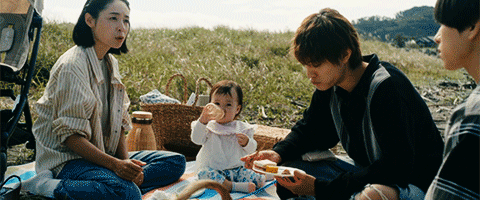
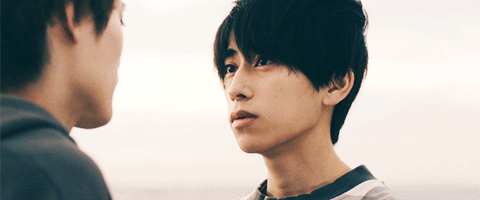
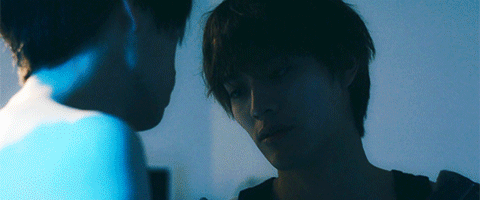
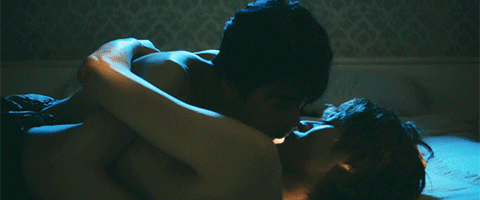
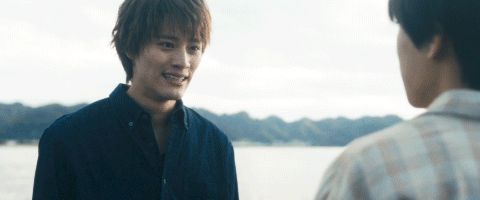
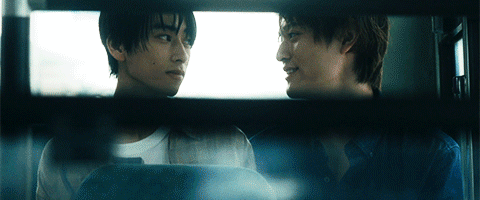



Miseinen: Mijukuna Oretachi wa Bukiyo ni Shinkochu | S01E06
Japanese Drama - 2024, 11 episodes
~~ Adapted from the webtoon “Our Youth” (미성년) by Hi Nun (히눈).
Native Title: #未成年~未熟な俺たちは不器用に進行中~
Genres: #LGBTQ+ | #Youth
Tags: #Student Male Lead | #Delinquent Male Lead | #Opposites Attract
Cast: #Motojima Junsei | #Kamimura Kenshin | #Imai Yuki |#Miyaji Itsuki
Link:Gaga | Viki | YouTube | iQIYI | WeTV | Youku | Tencent
Catalog:Episode GIF sets | Japanese Drama | Japanese BL
#Drama: Our Youth#Miseinen: Mijukuna Oretachi wa Bukiyo ni Shinkochu#Japanese Drama - 2024#LGBTQ+#JDrama#Youth#Student Male Lead#Delinquent Male Lead#Opposites Attract#未成年~未熟な��たちは不器用に進行中~#Motojima Junsei#Kamimura Kenshin#Imai Yuki#Miyaji Itsuki#Japan BL#BL GIFS#tw: child abuse#Kiss Episode
133 notes
·
View notes